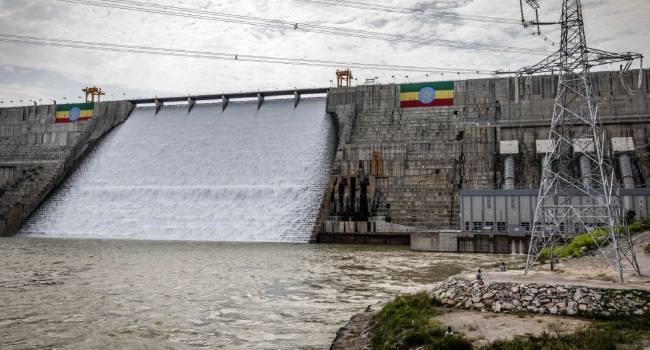THE African Regional Organisation of the International Trade Union Confederation (ITUC-Africa) has eulogised Ethiopia following the country’s historic inauguration of the Grand Ethiopian Renaissance Dam, said to be Africa’s largest hydroelectric dam.
In a statement signed by ITUC-Arrica General Secretary, Akhator Joel Odigie with the title, “TUC-Africa Applauds Ethiopia On The Inauguration Of Africa’s Largest Hydroelectric Dam: A Step Towards Energy Sovereignty And Climate Justice”, the pan-African labour body hailed the commissioning of the Grand Ethiopian Renaissance Dam (GERD) as more than a national success, calling it a “continental inspiration” that signifies a major stride towards energy sovereignty and climate justice.
Emphasising that Ethiopia’s achievement demonstrates Africa’s inherent capacity to harness its abundant natural resources for development through public ownership, ITUC-Africa stated that this approach will ensure that energy is treated as a common good for the people, “and not a commodity monopolised for profit.”
The organisation noted that the clean energy generated by the dam is expected to be a significant catalyst for Ethiopia’s industrialisation, stressing that the project’s broader continental implications aligns with commitments to a just transition away from fossil fuels.
It added that the clean energy generated will not only propel Ethiopia’s industrialisation, but will also contribute to the continent’s broader commitment to climate justice and a just transition, by reducing dependence on fossil fuels and expanding access to sustainable energy.
The African workers body noted that Ethiopia is showing that development and decarbonisation can go hand in hand, while noting that it is a step towards building resilient economies that prioritise workers, communities, and the environment.
The statement also stressed that International Labour Standards (ILS) are non-negotiable, for which ITUC-Africa asserted that the workers who build and operate such critical infrastructure must have their rights protected, their voices heard, and their working conditions improved.
Editor: Ken Eseni








